from dotenv import load_dotenv
load_dotenv(override=True)
Python-dotenv can interpolate variables using POSIX variable expansion.
With load_dotenv(override=True) or dotenv_values(), the value of a variable is the first of the values defined in the following list:
- Value of that variable in the .env file.
- Value of that variable in the environment.
- Default value, if provided.
- Empty string.
With load_dotenv(override=False), the value of a variable is the first of the values defined in the following list:
- Value of that variable in the environment
- Value of that variable in the .env file.
- Default value, if provided.
- Empty string.

